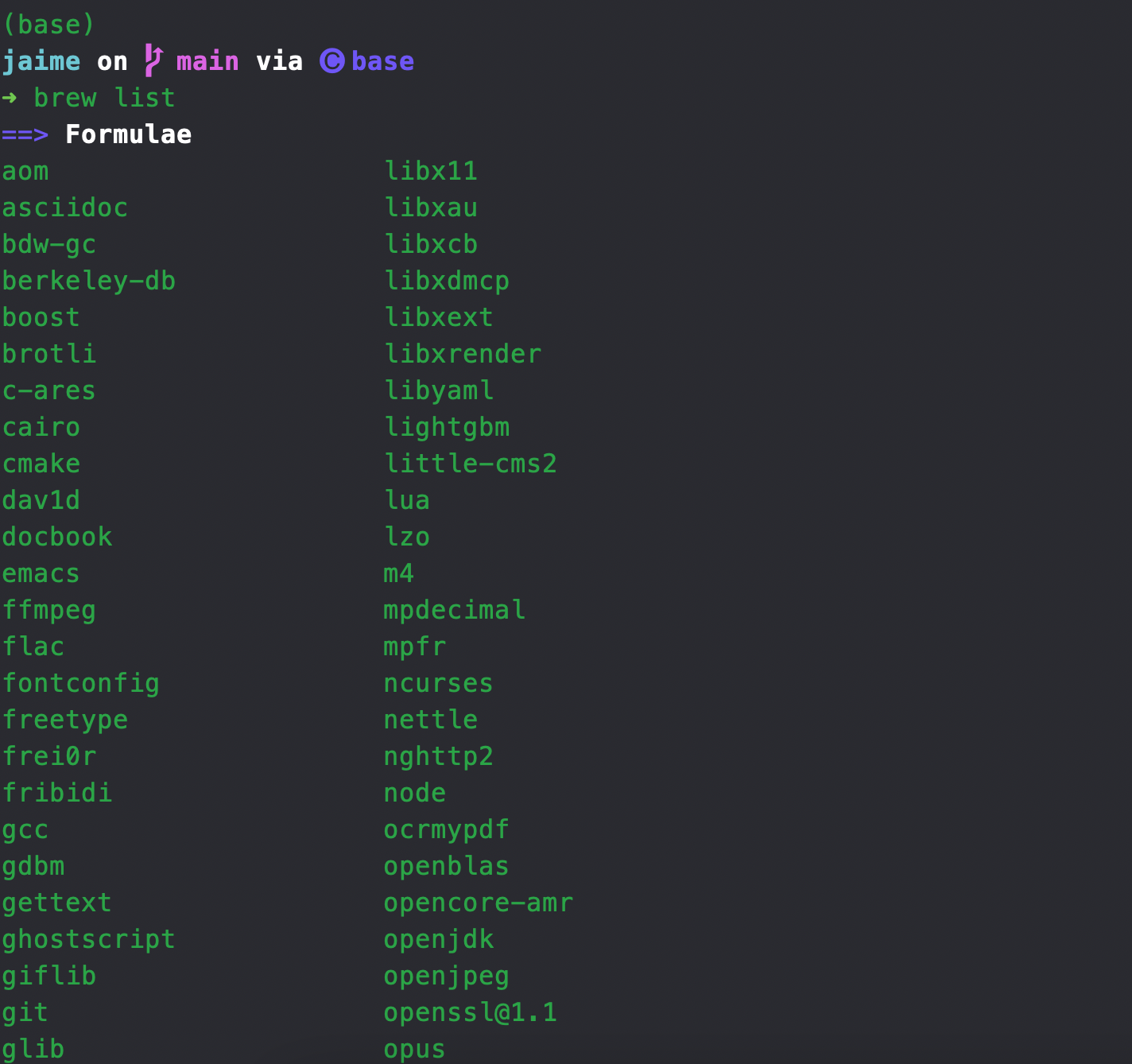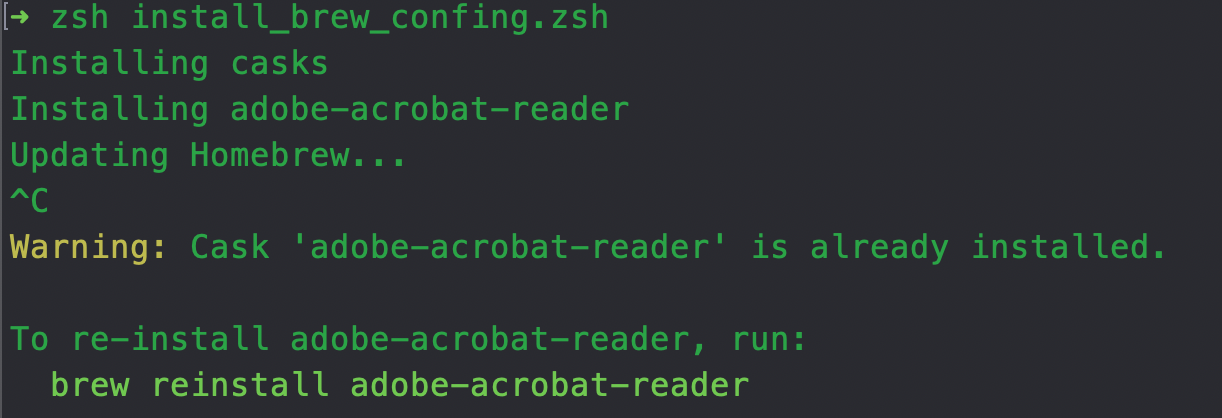Introduction
Recently, my laptop has been experiencing performance issues, so I considered formatting my SSD to see if it would improve its performance. The problem with this process is that I would need to reinstall all my software, which can be tedious. Fortunately, I have Homebrew installed and some knowledge of zsh scripting and Python, so I decided to use these tools to automate the process.
Experiment
My goal was to create a .py script that could generate a .zsh script from a .txt file containing the software I previously had installed. The first step was to get the software installed by Homebrew. I ran the following command in Terminal:
brew list
And we get the result on the first figure. The next step is to copy all the results inside a .txt and to code a way to parse the .txt into something that we can use with Python.
 .
.
The .txt looks like this:
Formulae
aom libx11
asciidoc libxau
bdw-gc libxcb
berkeley-db libxdmcp
boost libxext
brotli libxrender
c-ares libyaml
cairo lightgbm
cmake little-cms2
dav1d lua
docbook lzo
emacs m4
ffmpeg mpdecimal
flac mpfr
fontconfig ncurses
And it looks the same with the casks.
This is a little bit trivial. The next snippet lets us parse the .txt:
path_txt = "brew_packages.txt"
with open(path_txt,"r") as f:
lines = f.readlines()
lines = "\n".join(lines)
lines = re.sub("\s+",",",lines.strip())
lines = lines.split(",")
formulae_n = lines.index("Formulae")
cask_n = lines.index("Casks")
# Create list with casks
casks = lines[cask_n+1:]
casks = ("\n".join('"'+item+'"'for item in casks))
# Create lists with formulaes
formulae = lines[formulae_n+1:ocask_n]
formulae = ("\n".join('"'+item+'"'for item in formulae))
Now we have two list containing the different names of the packages, now we need to create a .zsh script that can be executed directly through the terminal with Python. The zsh is the default shell in Mac Os and its scripting language its quite simple to use. A common “hello_world” script looks like this:
echo "Hello_world"
What we want to generate is Python script capable of creating a zsh script every time our txt with the packages changes.
Zsh scripting
The zsh scripts will use two arrays and two different for loops. Arrays are declared this way:
declare -a CASKS=(
"blablabla"
)
declare -a FORMULAE=(
"blebleble"
)
And the for loops will use the brew install and brew install --caskcommands. The loops will look like this:
echo "Installing casks"
for i in "${CASKS[@]}"; do
echo "Installing $i"
brew install --cask $i
done
After having the zsh structure defined, we shall add this to a Python script to do all this process automatically every time we change brew_packages.txt
Python script
The Python script will concatenate a couple of different string and parameters to create a zsh script.
# Declare arrays in .zsh
cask_final = "CASKS=(\n"+casks+"\n)"
formulae_final = "FORMULAE=(\n"+formulae+"\n)"
# Add the declares
text_cask = "declare -a "+ cask_final
text_formulae = "declare -a "+formulae_final
# Create the final script
zsh_script ="#!/bin/zsh\n"+ text_cask +'\n'+text_formulae+'\n'+ """
echo "Installing casks"
for i in "${CASKS[@]}"; do
echo "Installing $i"
brew install --cask $i
done
echo "Casks installed"
echo "Installing formulae"
for i in "${FORMULAE[@]}"; do
echo "Installing $i"
brew install $i
done
echo "Finish Install"
"""
#print(zsh_script)
# Create the zsh script
f = open("install_brew_confing.zsh","x")
f.write(zsh_script)
f.close()
Afterwards, we can run the install_brew_confing.zsh directly from the terminal using zsh install_brew_confing.zsh and see the end results.
 It works! The full .py script is available here.
It works! The full .py script is available here.
Final thoughts
Anyway, after all this long process(which was fun to do), I found out that there is a command available with Homebrew that already does this automatically, creating a Brewfille that can be saved for future recoverys 🤪 . The command is:
brew bundle dump
# this creates the Brewfile
brew bundle
# this install whatever the Brewfile has